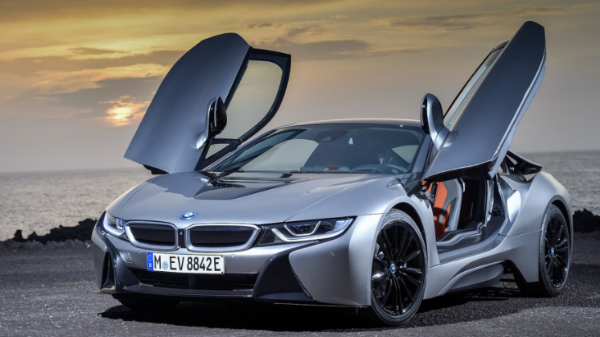Electric Vehicles (EV) and hybrid cars have been significantly expanding over the last decade, especially with supportive policies and technology advancement, according to the International Energy Agency. In fact, a report from Bloomberg New Energy Finance stated 58 percent of global passenger vehicle sales in 2040 will come from electric vehicles. With the Hong Kong government actively supporting the adoption of EV cars throughout the city and a wider range of options available on the market, is it time to switch over to electric cars?

A larger network of charging stations
The local government has, for several years, taking an active role in supporting the adoption of electric cars in the city through tax reductions, financial incentives and more importantly laying out infrastructures for charging stations across the city. In 2019, The Chief Executive announced the preparation of a $2 billion pilot subsidy scheme to promote the installation of an EV charging network that will be made easily accessible to EV car owners in private residential car parks as well as public parking spaces.

Better for the environment
Hong Kong’s air pollution index has been a major cause of concern for many residents, as well as the local government, prompting it to facilitate an EV-friendly city to combat the detrimental consequences of greenhouse gas emissions from petrol and diesel vehicles. According to the Environmental Protection Department, 60% of carbon monoxide emissions comes from transportation. Because electric cars are powered by electric motors that run on rechargeable batteries, replacing conventional cars with EV cars drastically reduces carbon emissions into the air.
More Economical
One of the biggest reservations most consumers have when considering an electric car is the mileage. The Tesla Model 3 currently boasts the longest range among other EV cars on the market, covering 320miles on a full six to nine-hour charge. In contrast, conventional fuel-pumped cars go between 360 to 480 miles on a full tank, needless to mention that refuelling also takes less time. But Hong Kong also has the most expensive auto-fuel retail price in the world, according to the Consumer Council. It costs $17 per litre to pump gas while charging an EV car is free.
However, if road trips out of the city is a priority, hybrid cars offer the best of both words covering a longer range fueled by reusable energy, and gas as a reserve. Otherwise, there are about 3,351 EV charging stations across the city, at refuelling stations, public parking spaces as well as private residential car parks (one within every 10km).
A growing range of options
Over the years the number of electric vehicles and hybrid cars entering the market has steadily increased, offering an optimistic future for the development and advancement of EV cars. No longer exclusive to Tesla, the industry now features some of the biggest names in the motor industry including BMW, Mercedes-Benz, Aston Martin, Porsche and Volkswagen, to name a few. Rolls Royce had also declared its commitment to manufacturing a line of EV cars, skipping on hybrids completely, and iPhone and Macintosh technology company Apple also recently announced that it will be rolling out an EV car in 2024.
As of right now, Tesla remains in the lead, offering models with the longest range and quickest acceleration on the market, however that will soon change with more hybrid sedans and utility EVs expected to come out of the woodworks with improved specifications, performance, charging time, and even more luxurious exterior and interior layouts.

Save on cost
Though the cost of purchasing an EV car can set you back anywhere between $500,000 to $1 million, the cost of maintenance and servicing will save buyers money in the long run. Conventional cars consist of several parts that often break down or need regular servicing or maintenance, whereas EV cars only need to be serviced twice a year and have their brake fluid replaced every 5 years. Though the battery packs are the most expensive part to maintaining ((between five to fifteen thousand) an EV car, most battery packs come with an eight-year (or 100,000miles) warranty and take about 17 years to die (or 200,000miles).
So, is it time to switch to electric cars?
There are at least 12,000 registered electric cars in the city and despite the initial upfront cost of switching over to an electric car is high, the need for maintenance, servicing and downtime are much less and more convenient than conventional cars. Saving at least $5,000 per year, not including the government’s incentives. And with a wider range of options to hit the market in the next few years, and a more widespread network of EV chargers in gross spaces, both public and private residential areas across the city to accommodate the demands of private electric car owners, there is very little downside to a sustainable, cost-efficient and eco-friendly move as to switch from conventional gas-powered cars to its electric alternative.





